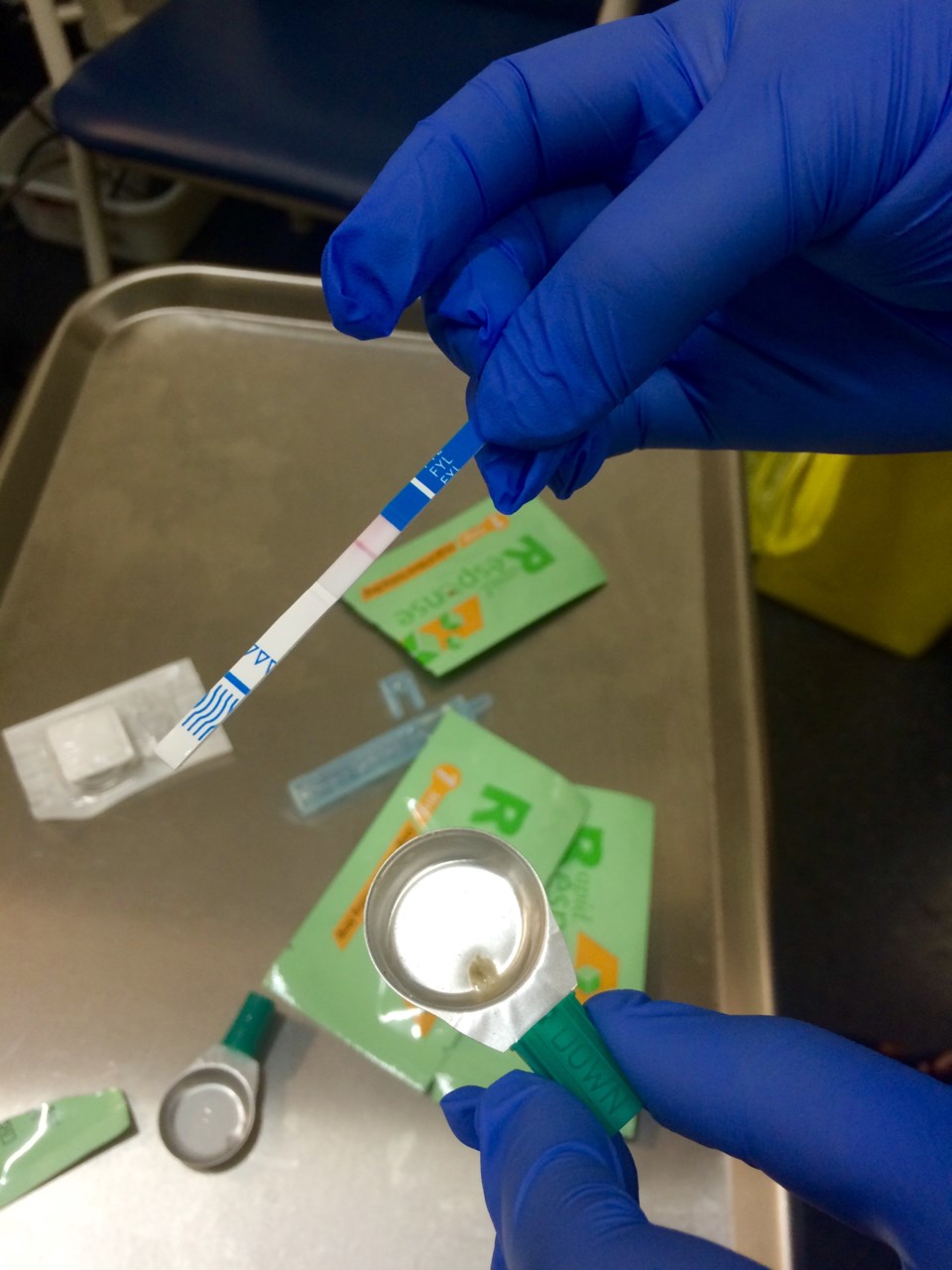Vancouver Coastal Health is making another tool in the ongoing opioid crisis available to local drug users.
The health authority announced Thursday morning that take-home drug checking strips will soon be available at designated sites throughout the Vancouver Coastal Health region. The decision to offer the take-home testing kits was made after results from a new study showed that take-home drug checking is as accurate as drug checking at a health care facility in identifying opioids contaminated with fentanyl, which is responsible for killing thousands of people in B.C. in recent years.
“We’ve been offering drug checking at community health centres, overdose prevention and supervised consumption sites but we know that not everyone can or wants to go to these sites, especially in light of the stigma that people who use drugs can face,” Dr. Mark Lysyshyn, medical health officer at Vancouver Coastal Health, said in a press release.
“We know most people who die from overdoses are using alone. Being able to check their drugs for fentanyl may help them make safer choices and ultimately prevent overdoses.”
In Vancouver, strips will be initially available at Insite, Molson overdose prevention site, Overdose Prevention Society, St. Paul’s Hospital overdose prevention site, and the Three Bridges and Robert and Lilly Lee community health centres.
The health authority will also make the strips available in Powell River, the Sunshine Coast and the Sea to Sky corridor. More communities and locations will be added as the program expands.
“Providing people with a simple, convenient way to check if their drugs contain fentanyl may help them avoid an overdose, and reduce the number of lives lost due to the contaminated illegal drug supply on our streets,” said B.C. Health Minister Judy Darcy.
VCH, Interior Health and the B.C. Centre for Disease Control conducted the research study between April and July 2019. Participants were provided with free take-home drug checking kits, each containing five fentanyl test strips, instructions and a survey.
Results from 994 take-home test strips were compared to checks on opioids conducted at health care and community sites during the same time period.
The results showed:
- Take-home drug checking found 89.95 per cent of opioid samples contained fentanyl, while on-site drug checking found 89.14 per cent of samples contained fentanyl.
- 27 per cent of clients using the take-home kit made a safer choice if their substance tested positive for fentanyl — using with a friend, using less of a substance or using more slowly, or taking their substance to an overdose prevention or supervised consumption site for use.
- 96 per cent of participants said they would use the take-home checking kit again.
Originally intended for urine drug tests, the health authority said it started using test strips to check drugs for fentanyl in 2016. A small amount of a drug is mixed with a few drops of water, the test stripe is inserted into the solution and the result, either positive or negative for fentanyl, is revealed within seconds.
Vancouver Coastal Health said clients using its sites voluntarily have their drugs checked an average of 500 times a month.
@JessicaEKerr



